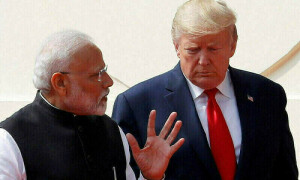Las Vegas - The head of the US National Security Agency defended the government's much-criticized surveillance program against hecklers among a crowd of computer systems analysts Wednesday, but also had a challenge for them: If you don't like it, lend your talent to build a better one.
"You're the greatest tech talent anywhere in the world. Help us," Army Gen. Keith Alexander said at the hacker conference for the buttoned-up corporate and government security analyst crowd, not the one later in the week for the more counter-culture types.
Alexander spent much of his 45-minute address explaining how government methods used to collect telephone and email data helped foil 54 terror plots since 1993. He was interrupted at times by hecklers, but also drew applause.
"Our nation takes stopping terrorism as one of the most important things," he said, standing in short sleeves with a slide on the screen behind him showing a timeline and the number of foiled plots.
"Freedom!" one man shouted from the middle of the standing-room crowd.
"Exactly. And with that, when you think about it, how do we do that? Because we stand for freedom," Alexander said.
"Bulls--t," the heckler said.
"Not that," Alexander replied before continuing his keynote speech to the annual Black Hat conference at Caesars Palace. Organizers said the conference drew 7,000 people.
Alexander didn't refer in his address specifically to leaks by former NSA systems analyst contractor Edward Snowden of classified documents that brought attention on the government's surveillance efforts.
He remained unapologetic, denying another heckler's claim that he lied to Congress about methods the NSA uses to "connect the dots" and "go after the bad actors who may want to do us harm."
"People say, 'I hear what you say, but I don't trust that,'" Alexander said.
"How do we defend this country? That is the question," he said. "The nation needs to know we're going to do the right thing."
The four-star general, who has headed the NSA for eight years, said it wasn't true the agency listens to specific phone calls and reads emails. He said "no one at NSA" has ever gone outside the legal boundaries of the Patriot Act and Foreign Intelligence Surveillance Act programs allowing the collection of "metadata."
Alexander emphasized oversight of his programs by Congress, courts and the administration, and posted a slide of the type of broad one-line "metadata" that he said the agency collects from communications abroad: Date, duration, phone number calling, phone number receiving, and a note about the authorizing entity.
"There are no names in the database," he said. "No addresses. No credit card numbers. The database is like a lockbox."
Alexander said the data led to the disruption of 13 terror plots in the US, 25 in Europe, five in Africa and 11 in Asia. He spoke of a thwarted plot to bomb the New York City subway system in September 2009, but didn't specify others.
"We get all these allegations of, 'What they could be doing,'" Alexander said. "But when you check, like the (congressional) intelligence committees, they find that hasn't happened. Zero times."
Ted Doty, a computer product security manager and blogger from Atlanta, said he wasn't convinced.
"The smart people know that what's interesting is the connection trees," Doty said, referring to the links between one caller and the next. "That's what the NSA wants."
Doty said he suspected the government submits emails and text communications to transcription software and searches it using algorithms to find key words and phrases.
Mike MacKinnon, an information technology manager for a Los Angeles law firm, said he thought Alexander handled heckling well. He noted that Alexander even drew laughter when a voice shouted that he should read the Constitution.
Alexander said he had, and the heckler should, too.
"I expected a bit more yelling," MacKinnon said.























































Dear visitor, the comments section is undergoing an overhaul and will return soon.